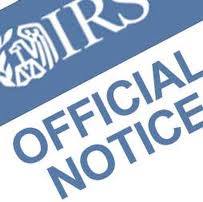When you owe money to the IRS, you can’t escape the debt. You have heard the horror stories about the IRS garnishing wages, levying bank accounts and even seizing assets to cover an unpaid tax bill. If you find yourself in this situation, you do need the immediate help of a qualified tax professional. Navigating the IRS collection process can be a daunting task for even the most qualified accountants. Our professionals have years of experience and detailed understanding of the IRS collection process and solving IRS problems, even for those who owe significant amounts of money in back taxes. Call to speak with a qualified professional now at (800) 844-7750.
You may be able to settle your tax debt for less than you owe, and in fact, the IRS has recently made it easier for taxpayers to do just this, with less stringent requirements, and greater allowance for expenses.
But even once you solve your tax debt and other tax problems, can you keep them from happening again? With proper planning, you’ll be able to turn tax season into the time of year you anticipate rather than dread.
1) Update Your W-4 Form. Submitting an updated W-4 form to your employer ensures the proper amount is withheld from your paycheck. Underpaying your taxes throughout the year can lead to an unpleasant surprise when you prepare your return. If you go through a divorce or you alternate claiming a dependent, you want to make sure your W-4 reflects the changes for the year. It is always better to overpay than to underpay. Any amount you pay in excess of what you owe is refunded when you file taxes.
2) Quarterly payments for the self-employed: If you are self-employed, it is imperative that you pay estimated quarterly tax payments. You should be paying at least what you owed in the prior year, or 90% of what you think you will owe this year. Not doing so can result in large tax liabilities for those who are self-employed, as well as substantial penalties for failure to make estimated tax payments. Our office can assist you in making sure you follow these requirements properly.
3) Deductions and credits reduce your taxable income: There are a variety of deductions you may not even realize you are entitled to declare. If you recently upgraded your home to make it more energy-efficient, you may be eligible to report a portion of the cost and installation fees. Students can receive credit for tuition and education expenses by claiming the Hope Credit or the American Opportunity Credit. If you lease a car that you use for work, you can deduct a portion of the lease payment. Taking advantage of all possible deductions and credits can significantly lower your tax bill.
4) Records and receipts: If you are self-employed or claim certain deductions, it is important to keep records and receipts. Although you are not required to submit documentation along with your tax return, you will need to supply the information if you are audited. Without documents to support your income or deductions, you could find yourself unable to claim the income or deductions.
There are other legal tax saving measures you may be completely unaware of! We will work with you to help maximize your tax savings and avoid penalties and interest in the future.

